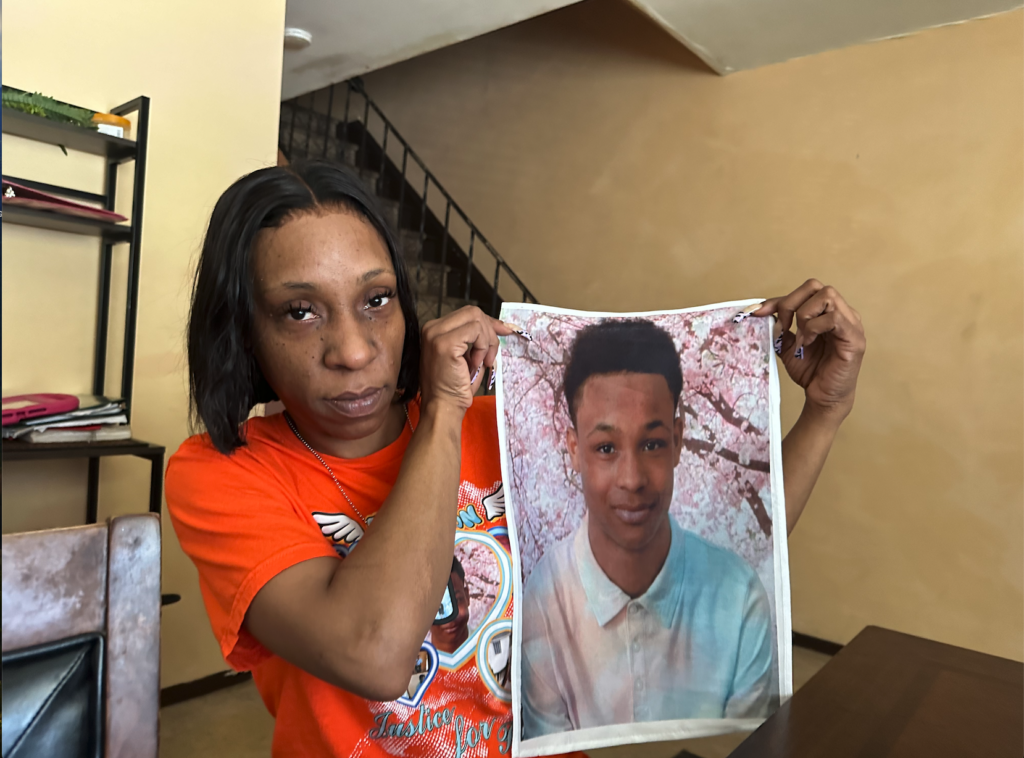Riverhead extends controversial migrant ‘state of emergency’

Riverhead Supervisor Yvette Aguiar has extended a controversial executive order declaring a state of emergency in an effort to prevent Mayor Eric Adams of New York City— which has been inundated with nearly 70,000 migrants and asylum seekers in the past year — from relocating them in substantial numbers to transient housing facilities in Riverhead.
Last week’s state of emergency declaration asserts that “all hotels, motels, bed and breakfast facilities, inns, cottages, campgrounds or any other transient lodging units and/or facilities allowing short term rentals do not accept said migrants and/or asylum seekers for housing” within the town.
State of emergency declarations by Riverhead town officials must be extended every five days or they expire. Ms. Aguiar extended the declaration for five more days beginning Monday.
Riverhead is one of more than a dozen counties, cities and towns in New York state that have preemptively declared states of emergency to block local hotels and motels from signing contracts with New York City to house migrants, according to Newsday.
In a statement accompanying last Tuesday’s executive order, town officials said that the “health and safety of the residents of Riverhead remains Supervisor Aguiar’s primary concern and top priority,” and suggested that Riverhead, in contrast to other county municipalities, cannot “withstand further demand on our public services.”
“Relative to the surrounding townships on the East End and throughout Suffolk County, Riverhead has done more than its share when it comes to housing the homeless, providing services and offering affordable housing and our resources and taxpayers simply cannot withstand further demand on our public services,” the statement said.
In the original executive order, Ms. Aguiar notes that in and around Riverhead there are currently “an estimated 224 overcrowded apartments or over-occupied homes,” as well as, “91 unlawful apartments … 35 unsafe buildings … two large-scale, non-transient homeless shelters … 14 sober homes … and three outdoor homeless encampments.”
The order goes on to assert that “there is nothing humanitarian about a sanctuary city sending busloads of people to a rural [t]own that does not have the infrastructure to care for them, especially since social services funding is not applicable to undocumented individuals …”
A violation of an executive order is a class B misdemeanor under article 2-B, section 24 of the State Executive Law, according to Town Attorney Erik Howard, which can be punished with fines and/or a term of incarceration up to 90 days.
New York City Mayor Eric Adams suggested on CBS’s Face the Nation Sunday that every U.S. city should share in the burden of housing migrants and asylum seekers.
“We have 108,000 cities, villages, towns,” Mr. Adams said. “If everyone takes a small portion … it is not a burden on one city.”
Suburban New York City counties, including Orange County and Newburgh County, have won temporary restraining orders after New York City officials sought to house some of the migrants at hotels and motels in those areas. Those restraining orders have been challenged by the American Civil Liberties Union.
Meanwhile, Republican county legislators gathered in Happauge Sunday for a press conference to announce they will hire a lawyer to explore legal options to prevent migrants and asylum seekers being bussed to New York City from being relocated to to the county.
Kevin McCaffrey, presiding officer of the Suffolk County Legislature, said during a contentious press conference Sunday that was broadcast on the legislature’s Facebook page that “New York City made a conscious decision to call themselves a sanctuary city. Suffolk County did not.”
At a town board meeting last week, board members were castigated by several irate residents who opposed the order.
Cyndy Clifford, a member of Riverhead’s Anti-Bias Task Force, said that if you do a Google search for Riverhead “right now,” and read the comments, “you will get far too many stories about how Riverhead is doing a state of emergency to keep immigrants out.”
She said these stories are spreading on the internet.
Ms. Clifford said the town needs to do something to educate the population on the issues, including explaining who the immigrants are, why they come here and how they survive, “to offset these ideas that are so wrong and so damaging and so hurtful and so offensive.”
Lisa Votino of Wading River said she’s been a community organizer for 20 years and has sponsored asylum-seekers. Right now, she said “asylum seekers are caught in a federal mess.”
Most asylum-seekers have sponsors, and when they get out of detention, there are buses waiting to take them to New York City, Ms. Votino said.
She said she wonders why there is a difference in opinion about asylum seekers from Central America and how they are treated, compared to those fleeing war torn Ukraine.
“Why are we welcoming to one group and not the other?” she asked.
Ms. Votino said the town’s state of emergency is only causing problems.
“I can only tell you this isn’t the answer,” Ms. Votino said. “This is causing hysteria.”
She urged the board to rescind the state of emergency.
“I disagree that we should open the flood gates and take on the world’s problems when we can’t solve our own,” town councilman Tim Hubbard said.
Ms. Clifford said that the assertion that the ‘flood gates’ are open or that buses are actually bringing migrants to Riverhead “isn’t something that any of us has found yet that supports that.”
“The flood gates are open,” Mr. Hubbard responded. “The people are coming across in higher numbers than ever before. That’s a fact.”
Riverhead Police Chief David Hegermiller said last Wednesday that no asylum-seekers have come into Riverhead thus far.








